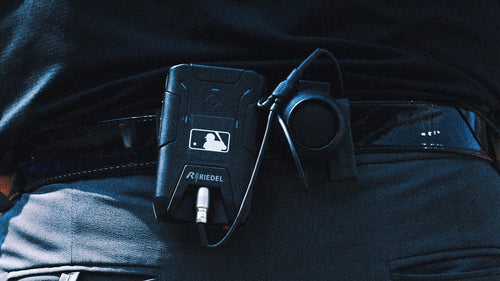
Mets: What to expect from Zack Wheeler in 2017
What can the Mets and their fans reasonably expect from the oft-injured pitcher in 2017?
Earlier this week, the Mets and Zack Wheeler avoided arbitration, agreeing on an $800,000 salary for the 2017 season. Wheeler, once the prized jewel of an up-and-coming rotation, has fallen onto the back burner after injuries and setbacks have kept him off the mound since 2014. Is 2017 the season he finally gets his career back on track?
When Wheeler arrived in the bigs in 2013, he showed plenty of flashes of what made him a first-round pick for the Giants back in 2009, but he had his issues. Wildness and high pitch counts plagued Wheeler early on in his major league career, but he seemed to work through some of the problems.
More from Rising Apple
By the end of 2014, as the rest of the rotation was settling into place around him, Wheeler began to show some serious consistency. He finished the season with 32 starts, compiling an 11-11 record with a 3.54 ERA to go along with a nifty 9.1 K/9 rate. His highlight of the season came in June, when he notched his first career shutout in Miami. It seemed as if Wheeler was well on his way to becoming a cornerstone in the Mets’ rotation for years to come.
Unfortunately, just before the 2015 season began, Wheeler had Tommy John surgery to repair a torn UCL, which knocked him out for the entire year. Then after setbacks in the rehab process, Wheeler was shut down and missed all of 2016 as well. So, after not pitching in a major league game in over two calendar years, where does the 26-year-old righty go from here?
The most tantalizing option for Wheeler in 2017 is to put him back where he started out, in the rotation. Mets fans have dreamed for years of a top-to-bottom rotation that includes all their young studs: Noah Syndergaard, Matt Harvey, Jacob deGrom, Steven Matz, and Wheeler. While all these young hurlers in the same rotation would be amazing from both a baseball and marketing perspective, perhaps going in a different direction would be the most helpful.
The idea of Wheeler heading to the bullpen has been floated throughout the offseason, and it makes a lot of sense from multiple perspectives. First and foremost, it is much easier to handle a pitcher’s innings if they’re coming out of the bullpen as opposed to yanking a starter from a game early or going to a six-man rotation. This would benefit Wheeler’s health, and also limit any potential drama. (see: Harvey, 2015)
The Mets’ bullpen as currently constructed has a few question marks, with the main one being whether or not Jeurys Familia will be available for the early portion of the season due to a potential suspension. If Wheeler could slide into a one-inning relief role, whether it be the 7th or the 8th, it would allow Addison Reed to handle the 9th for the time without Familia, however long that may be.
As for the rotation, even with all the uncertainty in terms of health, there is probably enough depth to survive without Wheeler thanks to the emergence of Seth Lugo and Robert Gsellman in 2016. Having those two arms provides a fifth man to fill out the rotation, and then a fill-in for when someone gets hurt or needs a rest.
Sending Wheeler to the bullpen does make sense in theory, but it is contingent on whether or not his stuff returns to form after the surgery and all the discomfort that came along with it. Prior to his Tommy John surgery, Wheeler’s fastball sat in the upper-90’s and he featured a sharp breaking ball. This profiles well as a reliever, but there is every chance that he has lost a few ticks on his heater or some bite on his breaking stuff in the nearly two years of recovery time.
Obviously, expectations should be somewhat tempered when it comes to Wheeler’s success in 2017. All indications are that he will be ready to go come Spring Training, but Mets fans know all too well that health – particularly elbow health – can be fickle.
Even if Wheeler is healthy, I’d expect there to be some level of regression in terms of the wildness that plagued him early on in his career. However, if his velocity is anywhere close to what it was prior to the torn UCL, that’s something that everyone can live with.










